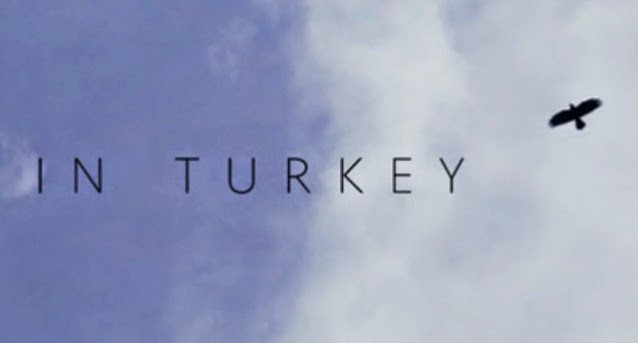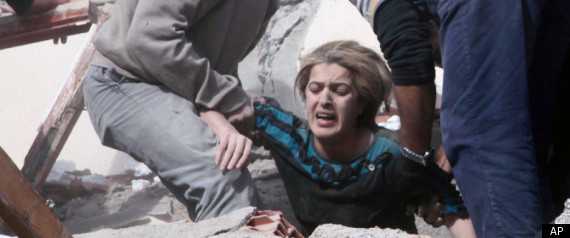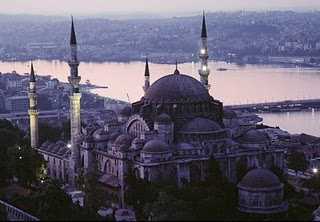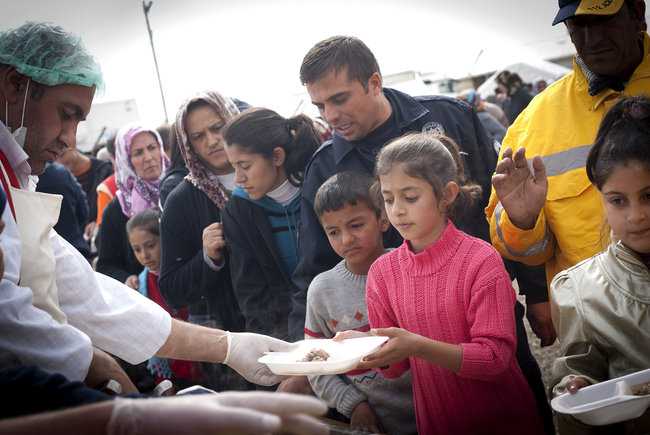By Jasper Mortimer
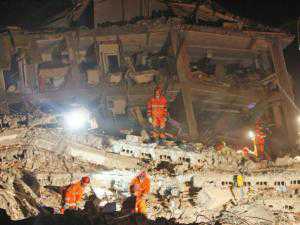
Family members have perished, their houses have been reduced to rubble, and some still lack basic shelter as sleet begins to fall, but the survivors of Sunday’s devastating earthquake in eastern Turkey are showing remarkable restraint.
Through the broken shop windows in Ercis the merchandise can still be seen on the shelves, or perhaps tumbled onto the floor.
There are no soldiers standing guard outside the shops, despite the gaping holes. People lack many things, but they have not taken to looting in a sign that speaks volumes about the community spirit in this town near the provincial capital of Van.
The earthquake wrecked the two-story house of Mehmet Tanriverdi and his family of five. The house still stands, but it is cracked from the ground to the roof.
He and his family now live in a Red Crescent tent pitched in the alley behind the house. They have blankets, which they retrieved from the house, and they have bottled water supplied by the authorities.
But they had to wait five hours for a minibus to deliver bread for their street on Wednesday, and there was a scuffle as two people fought over the loaves.
The Tanriverdis complain that although the government had given them a tent on Monday, on Sunday night they had been forced to sleep under the stars, and their 18-month-old girl had fallen ill.
The authorities have still not provided them with blankets, medicine, baby clothes, a heater or a carpet. They share their tent with six others.
“We’re sleeping on top of each other,” says Zeynep Tanriverdi, a 10-year-old member of the extended family.
Civil engineer Murat Altun, 29, said the Tanriverdi’s house would have to be demolished. A civil servant, he is going from house to house in Ercis deciding which houses are still habitable.
Altun said that so far his inspections showed that about 40 per cent of the buildings he had inspected would have to be knocked down.
The Tanriverdis would have to live in their tent for “two to three months,” the engineer said, after which they would probably be moved to a prefabricated house or a container.
In “18 months to two years” a new house would be built on their property. The government would pay 70 per cent of the cost. The Tanriverdis would have to come up with the remainder, he estimated.
Mehmet Tanriverdi, a waiter who has been unemployed for the past three months, said: “It’s going to be very difficult. The economy is in a bad state, there’s no work.”
He has been surviving on credit, promising to pay shopowners when he gets a job.
But there are signs of revival all round, despite the repeated and severe aftershocks. The local electricians are already busy restoring power lines.
And the fact that engineer Altun and his colleague are already taking stock of the usable buildings shows that the town of about 100,000 is getting back on its feet. – Sapa-DPA
via Community spirits breaks through Turkey – Daily News | News | IOL.co.za.

